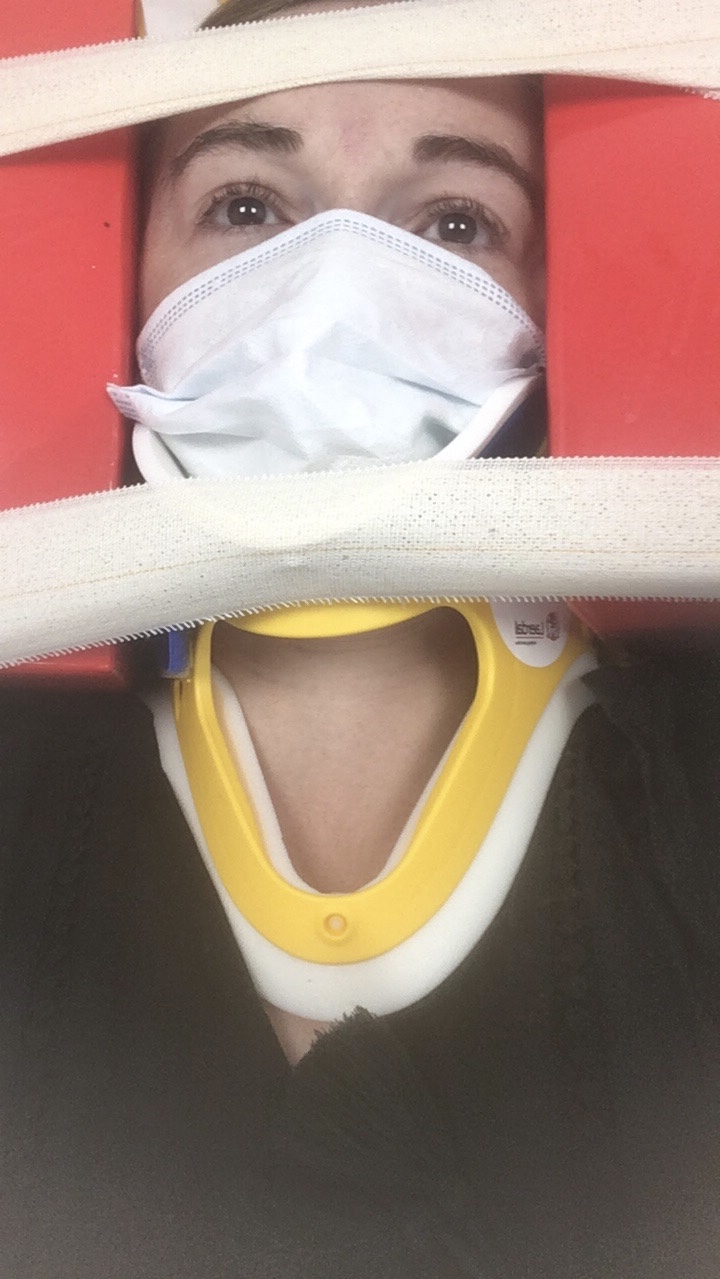Loading...
Activity
Bouldering
When
Injury
Serious injury requiring medical treatment
Incident
I am a short female climber and have been climbing over 20 years (indoors and outdoors; mountaineering, trad, sport and bouldering). I was bouldering on a problem graded well within my capability. The climbing centre often sets reachy bouldering problems and unlike another local wall it does not indicate 'low reach' routes (i.e. routes that go at the grade for climbers who are short). I had easily climbed all except the last move. At the final move my left foot was on a bad hold, left hand just touching the final hold, right foot at the top end of a volume and I was unable to reach the final hold with my right hand. I don't recall how I fell, but I assume my right foot slipped off the volume. I only remember landing on my neck with a huge jolt as my head snapped forwards. The next thing I saw I was lying on my back with my right arm facing the climb and my legs facing 90 degrees to the left of it. I lay on the ground for a while, then got up. By the time I had walked to the climbing wall reception I knew I was concussed and asked for a first aider. They recorded the incident and advised me to seek medical help. My partner came with me to A&E by car. I was then immobilised in a room in a neck brace for MRI scans of my brain and neck. I was discharged several hours later with a concussion but no fracture to the neck. The NHS staff were brilliant. I feel lucky to have walked away, but I do not know if the concussion will cause ongoing problems.
Lessons
I cannot think of anything I could have done to avoid this other than not bouldering at this climbing centre. I am an experienced climber, boulder regularly, am aware of advice on safe falling and follow it. The boulder problem was well within my capability other than that I could not reach the final hold, but there was no way for me to know I could not reach it in advance of trying. However, the climbing wall could easily have reduced my risk by 1) setting less reachy boulder problems (e.g. adding small extra footholds for short climbers), and/or 2) indicating 'low reach' problems so that short climbers know from the markers if a climb is reachy and can take extra care on reachy boulder problems.
Causes
Slip, trip or fall
Anonymous?
Yes
Reported By
Participant
Wearing Helmets?
Rescue Services Involved?

Author
29 June 2021 at 12:04:27
For more advice and guidance on good practices visit BMC skills
All reports are self-submitted and have not been edited by the BMC in any way, so please keep an open mind regarding the lessons and causes of each incident or near-miss.
If you have a concern regarding this report please contact us at incidentreports@thebmc.co.uk